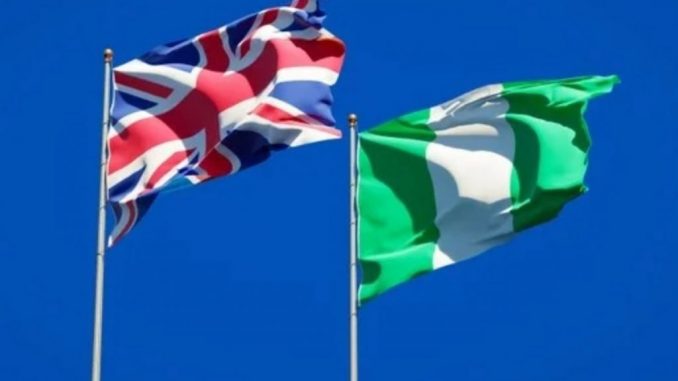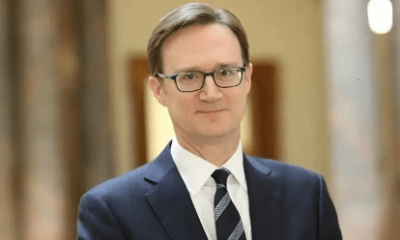News
New Visa Policy Good For Nigeria, UK — Envoy

British High Commissioner to Nigeria, Richard Montgomery, says the UK government’s new policy on the restriction of foreign student visas is aimed at managing the pressure on social services for scholars.
Montgomery, who said this during an interview with the News Agency of Nigeria in Abuja, explained that the policy was not targeted at discouraging Nigerian students studying in the UK.
He urged Nigerians to see the new visa regime in the UK in a bigger context, which he said is “really a positive for Nigeria and the United Kingdom.”
According to him, at the moment, Nigerians desiring to study in the UK have a 97 per cent visa approval rate.
“Three years ago, there were 20,000 Nigerian students in British higher education institutions, and last year, the number increased to 127,000.
“So, we had a five-fold increase in the number of students from Nigeria coming to UK universities.
“We are delighted that UK universities continue to attract the best and brightest from Nigeria.”
The envoy stated that, in 2022, “the UK granted three million new UK visas of various types, including students and other visitors.”
He added, “Nigerians alone received 325,000 of those three million visas.
“So more than 10 per cent of the visas from the UK are to Nigerian citizens which is fantastic.
“It goes back to the fact that the UK and Nigeria have strong people-to-people links.”
“The policy change is about people who are doing non-research degrees coming to the UK as undergraduates, or for a one-year master’s degree programme, and who decide to bring their dependents.
“We have had a very significant rise in the number of people coming from all around the world, not just from Nigeria.
“This has caused some strain on the UK.
“Sometimes it is difficult to find good accommodation as a student and there is real pressure on housing and social services for students.
“If you looked at it three years ago, only 1,500 dependents of students were coming to the UK from Nigeria, but now it was 52,000 last year.
“I am just trying to put it in proper context, that this is an adjustment.
“The words that are being used in the media to describe the situation are misrepresenting. We are making an adjustment that enables us to manage the demands on services in university towns and elsewhere.
“Nigerians are very successful in acquiring visas. We have a 97 per cent approval rate and so that is the big context,” Montgomery said.
He expressed the UK’s pride in its research institutes and higher education which, he said, were listed among the top hundred universities in the world.
The higher institutions, he said, are very open to students going to study in the UK.
He expressed the belief that Nigerians stand to gain massively from the international exposure and international networks offered by studying in the UK.
The News Agency of Nigeria reports that the UK Home Office in May announced that from January 2024, undergraduate and master’s students would no longer be allowed to take their dependents along with them to the UK.
The restriction does not apply to students in research programmes.
NAN
-

 News5 days ago
News5 days agoInsecurity: Kogi Schools Resume On Monday
-

 Opinion4 days ago
Opinion4 days agoDon’t Pull the Plug: Why Nigerians Are Pleading for the U.S. to Extend Its Police Training Program — and Why It Must Synergize With New Military Arrivals
-

 Crime4 days ago
Crime4 days agoVigilante Reportedly Shoots Colleague Dead In Plateau
-

 Crime4 days ago
Crime4 days agoMan Shot Dead In Ambush Along Jol-Sho Road In Plateau











